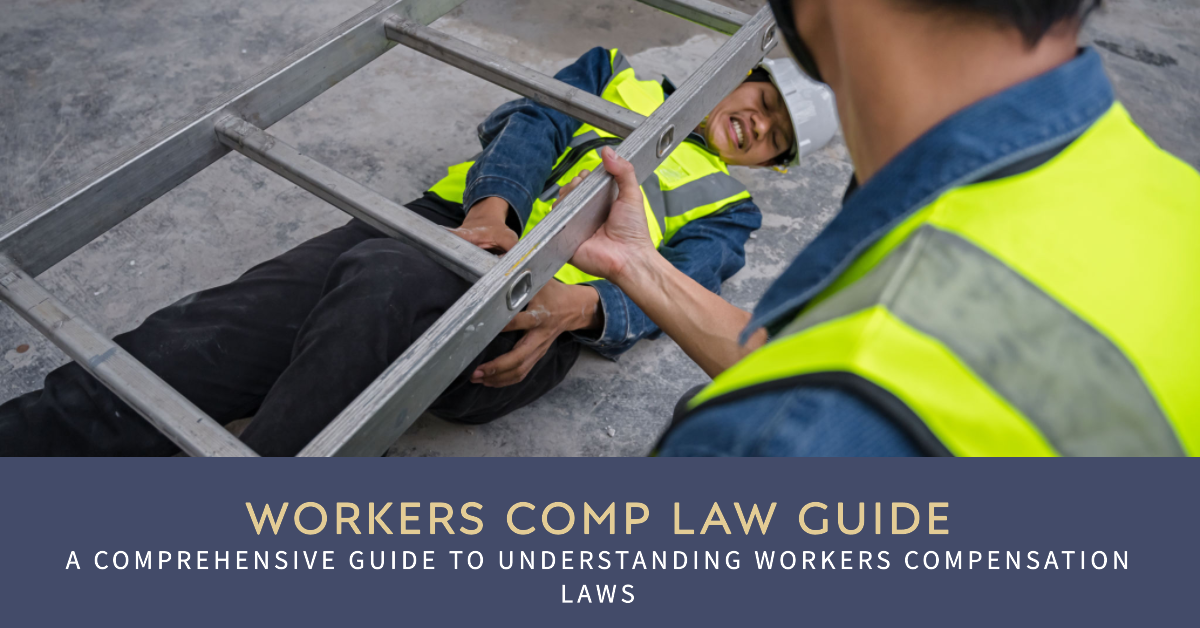Workers Compensation Law Guide

Understanding Workers Compensation
Workers compensation is a system that provides benefits to employees who have been injured or become ill while performing their job duties. It is designed to protect both the employee and the employer by providing financial support and medical treatment.
Key Concepts in Workers Compensation
- No-Fault System: Workers compensation is a no-fault system, which means that employees are entitled to benefits regardless of who caused the injury or illness.
- Exclusive Remedy: In most cases, workers compensation is the exclusive remedy for employees, which means they cannot sue their employer for additional damages.
- Compensable Injuries: To be eligible for workers compensation benefits, the injury or illness must be work-related, meaning it occurred while performing work duties or as a result of the work environment.
- Types of Benefits: Workers compensation benefits typically include medical treatment, wage replacement, disability benefits, vocational rehabilitation, and death benefits for dependents in the event of a work-related death.
Options for Injured Workers
If you have been injured at work, it is important to understand your options for seeking compensation and receiving appropriate benefits. Here are some common options:
1. Report the Injury
Notify your employer about the injury as soon as possible. Each state has specific deadlines for reporting work-related injuries, so make sure to comply with the requirements to preserve your rights.
2. Seek Medical Attention
Get the necessary medical treatment for your injury. Your employer may have a list of approved doctors or healthcare providers. Follow the recommended treatment plan and keep records of all medical expenses.
3. File a Workers Compensation Claim
Submit a workers compensation claim with your employer's insurance company. This claim should include details about the injury, medical treatment received, and any supporting documentation.
4. Consult with an Attorney
If your claim is denied, disputed, or you encounter any difficulties during the process, it is advisable to consult with an experienced workers compensation attorney. They can guide you through the legal complexities and protect your rights.
5. Explore Appeals and Dispute Resolution
If there is a disagreement regarding your workers compensation claim, you may need to go through an appeals or dispute resolution process. This typically involves presenting your case before an administrative law judge or a workers compensation board.
6. Return to Work or Vocational Rehabilitation
Once you have recovered or reached maximum medical improvement, you may be able to return to work. If your injury prevents you from returning to your previous job, vocational rehabilitation services can help you explore alternative employment options.
7. Understand Your Rights and Benefits
Familiarize yourself with the specific workers compensation laws in your state. Understand your rights, including the duration and extent of benefits, and know what to expect throughout the process.
Frequently Asked Questions
- When do I need to hire a workers' compensation lawyer?
- Can You Sue Your Employer for Premature Birth?
- How do I recover workers' compensation benefits after I'm terminated?
- What should I do if I receive injuries on the job?
- I'm injured and cannot work. What next?
- What types of injuries does workers' compensation not cover?
- Can I sue my employer for a work-related injury?
- Can I get workers' compensation for a car accident that happened on the way to work?
- What are the types of workers' compensation benefits available?
- How do I determine whether an injury or illness is work-related for the purposes of workers' compensation?
- My workers' compensation claim was denied. Do I need a lawyer?